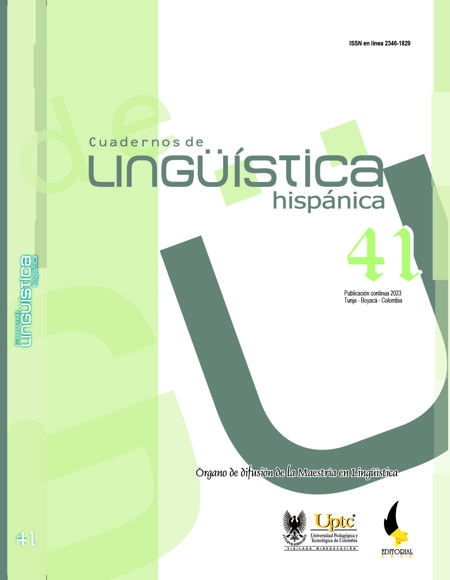La comprensión lectora en los teléfonos inteligentes, una comparación con los computadores

Resumen
Este estudio pretende comparar los efectos de los teléfonos inteligentes y los computadores en la comprensión lectora de textos narrativos y expositivos entre adultos de diferentes edades y niveles educativos. Para ello, se diseñó una tarea de lectura seguida de preguntas de opción múltiple y participaron 2391 voluntarios; se registraron sus niveles educativos, edades y dispositivos de lectura. De ellos, 1510 trabajaron con texto narrativo y 881 con texto expositivo. Nuestros análisis incluyeron estadística descriptiva, la prueba U de Mann-Whitney y la prueba de Kruskal-Wallis, así como regresiones simples y múltiples. Los resultados indican que, si bien los teléfonos inteligentes presentan desventajas con los textos expositivos (especialmente entre los grupos más jóvenes, de quienes generalmente se espera un mejor desempeño en estos teléfonos), tales desventajas no se observan con los textos narrativos. Además, el nivel educativo mostró un efecto significativo en todas las condiciones de lectura. En consonancia con investigaciones existentes, nuestros resultados revelan una desventaja significativa asociada a la lectura de textos expositivos en teléfonos inteligentes; en consecuencia, recomendamos emplear medios de lectura alternativos siempre que sea posible.
Palabras clave
comprensión lectora, teléfonos inteligentes, lectura en teléfonos inteligentes, lectura en pantalla, medios de lectura, tecnología y educación
Citas
- Abusamra, Ferreres, A., Difalcis, M., & Piacente, T. (2022). Leer y comprender: Tejidos con hilos de palabras. Buenos Aires: AZ Editora. ISBN: 978-987-35-0569-0
- Abusamra, Cartoceti, R., Ferreres, A., Raiter, A., De Beni, R., & Cornoldi, C. (2014). Leer para Comprender II (TLCII). Evaluación de la comprensión de textos. Paidós.
- Abusamra, Casajús, A., Ferreres, A., Raiter, A., De Beni, A., & Cornoldi, C. (2011). Leer para comprender. Desarrollo de la comprensión de textos. Libro de actividades. Paidós.
- Abusamra, Difalcis, M., Martínez, G., Low, D. M., & Formoso, J. (2020). Cognitive skills involved in reading comprehension of adolescents with low educational opportunities. Languages, 5(3), 1–20. https://doi.org/10.3390/languages5030034 DOI: https://doi.org/10.3390/languages5030034
- Abusamra, Ferreres, A., Raiter, A., De Beni, R., & Cornoldi, C. (2010). Leer para Comprender (TLC). Evaluación de la comprensión de textos. Paidós.
- Abusamra, & Joanette, Y. (2012). Lectura, escritura y comprensión de textos: aspectos cognitivos de una habilidad cultural. Revista Neuropsicologia Latinoamericana, 4(1), i–iv.
- Ackerman, R., & Lauterman, T. (2012). Taking reading comprehension exams on screen or on paper? A metacognitive analysis of learning texts under time pressure. Computers in Human Behavior, 28(5), 1816–1828. https://doi.org/10.1016/j.chb.2012.04.023 DOI: https://doi.org/10.1016/j.chb.2012.04.023
- Annisette, L. E., & Lafreniere, K. D. (2017). Social media, texting, and personality: A test of the shallowing hypothesis. Personality and Individual Differences, 115, 154–158. https://doi.org/10.1016/j.paid.2016.02.043 DOI: https://doi.org/10.1016/j.paid.2016.02.043
- Cartoceti, R. (2012). Inhibitory control and reading comprehension: evidences from specific verbal domain. Neuropsicologia Latinoamericana, 4(spe), 65–85. https://doi.org/10.5579/rnl.2012.0085
- De Beni, R., Borella, E., & Carretti, B. (2007). Reading comprehension in aging: The role of working memory and metacomprehension. Aging, Neuropsychology, and Cognition, 14(2), 189–212. https://doi.org/10.1080/13825580500229213 DOI: https://doi.org/10.1080/13825580500229213
- Delgado, P., & Salmerón, L. (2021). The inattentive on-screen reading: Reading medium affects attention and reading comprehension under time pressure. Learning and Instruction, 71(September 2020). https://doi.org/10.1016/j.learninstruc.2020.101396 DOI: https://doi.org/10.1016/j.learninstruc.2020.101396
- Delgado, P., Vargas, C., Ackerman, R., & Salmerón, L. (2018). Don’t throw away your printed books: A meta-analysis on the effects of reading media on reading comprehension. Educational Research Review, 25(September), 23–38. https://doi.org/10.1016/j.edurev.2018.09.003 DOI: https://doi.org/10.1016/j.edurev.2018.09.003
- Graesser, A. C., & McNamara, D. S. (2011). Computational analyses of multilevel discourse comprehension. Topics in Cognitive Science, 3(2), 371–398. https://doi.org/10.1111/j.1756-8765.2010.01081.x DOI: https://doi.org/10.1111/j.1756-8765.2010.01081.x
- Hou, J., Rashid, J., & Lee, K. M. (2017). Cognitive map or medium materiality? Reading on paper and screen. Computers in Human Behavior, 67, 84–94. https://doi.org/10.1016/j.chb.2016.10.014 DOI: https://doi.org/10.1016/j.chb.2016.10.014
- Kong, Y., Seo, Y. S., & Zhai, L. (2018). Comparison of reading performance on screen and on paper: A meta-analysis. Computers and Education, 123, 138–149. https://doi.org/10.1016/j.compedu.2018.05.005 DOI: https://doi.org/10.1016/j.compedu.2018.05.005
- Lauterman, T., & Ackerman, R. (2014). Overcoming screen inferiority in learning and calibration. Computers in Human Behavior, 35, 455–463. https://doi.org/10.1016/j.chb.2014.02.046 DOI: https://doi.org/10.1016/j.chb.2014.02.046
- Margolin, S. J., Driscoll, C., Toland, M. J., & Kegler, J. L. (2013). E-readers, computer screens, or paper: Does reading comprehension change across media platforms? Applied Cognitive Psychology, 27(4), 512–519. https://doi.org/10.1002/acp.2930 DOI: https://doi.org/10.1002/acp.2930
- Mohamad Ali, A. Z., Wahid, R., Samsudin, K., & Zaffwan Idris, M. (2013). Reading on the computer screen: Does font type has effects on Web text readability? International Education Studies, 6(3), 26–35. https://doi.org/10.5539/ies.v6n3p26 DOI: https://doi.org/10.5539/ies.v6n3p26
- Nafiseh, H., & Balakrishnan, M. (2014). The effects of font type and spacing of text for online readability and performance. Cotemporary Educational Technology, 5(2), 161–174. http://www.cedtech.net/articles/52/525.pdf DOI: https://doi.org/10.30935/cedtech/6122
- Schwabe, A., Lind, F., Kosch, L., & Boomgaarden, H. G. (2022). No Negative Effects of Reading on Screen on Comprehension of Narrative Texts Compared to Print: A Meta-analysis. Media Psychology, 25(6), 779–796. https://doi.org/10.1080/15213269.2022.2070216 DOI: https://doi.org/10.1080/15213269.2022.2070216
